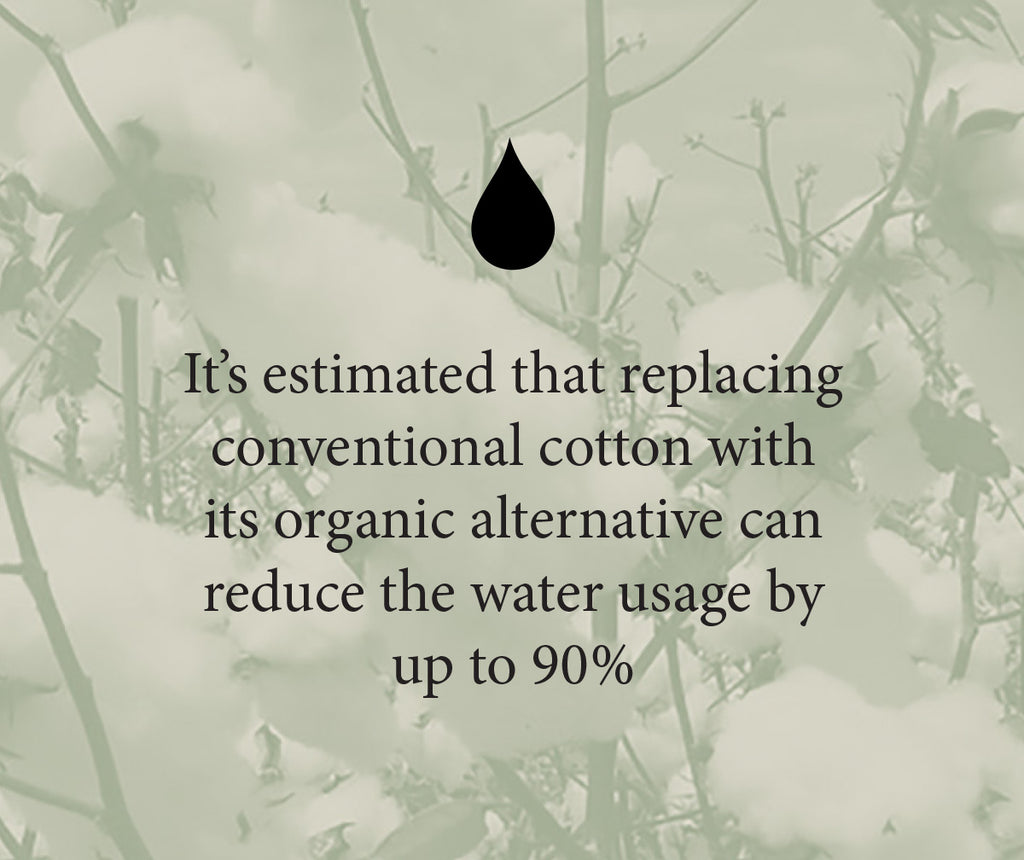
WHY ORGANIC COTTON?
It’s better for the planet and the people who farm it.
Organic cotton is made of natural fibres which are grown without the use of synthetic pesticides, herbicides, insecticides, and Genetically Modified Organisms (“GMOs”).
Without the presence of these harmful chemicals, cotton crops can instead rely on using compost and manure that are kinder to the land they’re grown on, protecting the health and biodiversity of the soil.
Water usage is lower for organic cotton farming because it is typically 80% rainfed instead of being irrigated.

Conventional Cotton
Conventional cotton is widely considered to be the most resource-intensive crop produced globally, often relying on GMOs which require a high quantity of fertilisers and pesticides, in addition to requiring a lot of water to cultivate.
These chemicals wash off the crops and into surrounding waterways (which are often a source of drinking water) that local communities rely on for their livelihood. Some of these chemicals contain known carcinogens (chemicals that cause cancer) a fact generally hidden from consumers.
The following can be considered from the Global Organic Textile Standard (“GOTS”):
- 1% of the world’s insecticides and 5.7% of total pesticides are used in conventional cotton production
- 77 million agriculture workers suffer poisoning from pesticides each year
- 83% of manufactured nitrogen fertilisers used on crops end up in the environment
Despite the clear benefits of organic cotton, less than 1% of global cotton supply is independently certified to be organic.
Whether it’s with Loop Home or other companies you support, we want to change the way you think about conventional cotton and encourage you to ask your favourite brands how they’re helping to solve this problem.
